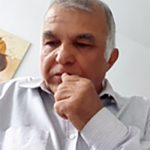آرشیف
War in Afghanistan (1978- Present)
گل احمد محمدی
War in Afghanistan (1978–present)
This article covers the history of Afghanistan since the communist military coup on 27 April 1978, known as the Saur Revolution, when the People's Democratic Party of Afghanistan (PDPA) took power. Since that day, an almost continuous series of armed conflicts has dominated and afflicted Afghanistan.
After this Saur Revolution, most of Afghanistan experienced uprisings against the PDPA government. The Soviet war in Afghanistan began in December 1979 to replace the existing communist government. Afghanistan's resistance forces, known as the mujahedeen, fought against the Soviet intervention in Afghanistan. Some factions received support from the United States, with the Pakistani ISI serving as the U.S. middleman, and Saudi Arabia. The Soviet Union had to withdraw its troops in February 1989. The Soviet-backed Afghan communist government survived for three more years until the fall of Kabul in 1992.
In 1992, the Afghan political parties agreed on the Peshawar Accords which established the Islamic State of Afghanistan and appointed an interim government. Militia leader Gulbuddin Hekmatyar was opposed to the agreement and with Pakistani support started a bombardment campaign against Kabul. Additionally, three militias who had been able to occupy some suburbs of Kabul engaged in a violent war against each other. Regional powers such as Pakistan, Iran, Saudi Arabia, India and Uzbekistan seeking influence over the geostrategic ally located Afghanistan each supported and in some cases controlled one of those militias. While Kabul and some other major cities witnessed most of the fighting during that period, most of the more rural parts of Afghanistan, which had seen especially massive bombardment by the Soviets and Communists, remained relatively calm. In late 1994/early 1995, as the Islamic State's minister of defense Ahmad Shah Massoud had been able to defeat most of the militia’s militarily in Kabul and had restored some calm to the capital, the Taliban emerged as a new faction threatening Kabul.
The Taliban had initially emerged as a new force in the southern city of Kandahar conquering many southern and central provinces not under Islamic State control in the course of 1994. In early 1995, as they launched a major operation against the capital Kabul, they suffered a devastating defeat against the Islamic State forces of Massoud in what many analysts saw as the movement's end. By 1996, however, they had regrouped with massive military support by Pakistan and financial support by Saudi Arabia. In September 1996 they took power in Kabul and established the Islamic Emirate of Afghanistan. The United Islamic Front (Northern Alliance) was created under the leadership of Ahmad Shah Massoud as a military-political resistance force against the Taliban Emirate which was backed militarily by Pakistan's Army and enforced by several thousand Qaeda fighters from Arab countries and Central Asia.
Following the September 11 attacks in the United States in 2001, NATO invaded Afghanistan under Operation Enduring Freedom. The purpose of this was to defeat al-Qaeda, to remove the Taliban from power, and to create a viable democratic state to deny terrorists a place to recruit and operate. Although some of these objectives were achieved, a protracted and costly period of intervention followed and continues as of 2018.
Gull Ahmad Mohammadi
Herat/Afghanistan
8/April/2018
نوشتن دیدگاه
دیدگاهی بنویسید
برای نوشتن دیدگاه باید وارد بشوید.
مطالب مرتبط
پر بیننده ترین مقالات
مجلات و کتب
پیوند با کانال جام غور در یوتوب
صفجه جام غور در فیس بوک
Problem displaying Facebook posts.
Type: OAuthException
Subcode: 460
گزارشات و مصاحبه ها
-
قاری رحمت الله بنیان گزار گروه داعش و سرکرده گروه طالبان ولایت غورطی یک عملیات نیروهای امنیتی افغان در ولایت فاریاب کشته شد
-
کارگاه سه روزه آموزش حقوق بشر و حقوق بشردوستانه برای نیروهای امنیتی و دفاعی در ولایت غور
-
گرامیداشت شانزدهمین سالروز تأسیس کمیسیون مستقل حقوق بشر افغانستان در ولایت غور
-
امضاء تفاهمنامه نشر برنامه های حقوق بشری با چهار رادیو در ولایت غور


 0
0









